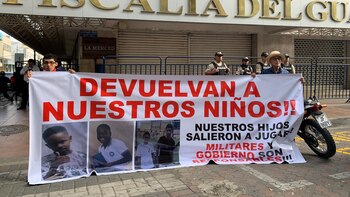
(ATR) Early planning is essential to the success of organizing committees in their legacy plans, a new report from TSE Consulting finds.
The study "Maximising Social Impact: Lessons learnt from social programmes of past major sports events" is set for publication Wednesday but Around the Rings was supplied with an advance copy.
In the study, TSE analyzed social programs from past major sporting events, limiting itself to Olympics, continental multi-sport games, the FIFA World Cup and continental football championships.
"The aim of the study is to provide a ‘how to’ guide on maximizing the social impact from social programs conducted in connection with major sporting events," the report says.
According to TSE, it's not meant to be an exhaustive report on successful social programs but rather "a look at a few good cases."
TSE studied the programs of the 2002 Manchester Commonwealth Games; the 2010 Vancouver Olympics, Singapore Youth Olympics and South African World Cup; and the Switzerland/Austria Euro 2008 football tournament.
All five had different goals in mind with their social programs, but a few key themes can be seen throughout, such as youth outreach, cultural education, friendship building and community development, either economically or with increased sport participation.
Budgets for each varied but were several million dollars a piece.
Planning as far in advance as possible is one of the greatest factors in a successful social program, the report indicates.
"This is because the success of the program often hinges on getting buy-in from multiple stakeholders which is time consuming and the program itself often takes years rather than months for benefits to be realized within the target community."
"Therefore the earlier the planning the more likely the program is able to realize its full potential."
With successful planning, the event’s social program can augment or fill in gaps left with existing social programs and provide a greater boon to the community, according to the report.
Sustainability of the program must also be weighed, as this will determine which groups to partner with and which stakeholders to target for buy-in. Sustainable benefits must be determined when planning the program as well.
Four other points for organizers to consider with their social programs are: target groups, meaning understanding "the real needs" of the community; structure, with the program organizer as a separate entity with key stakeholders on its board; resourcing, focusing on providing value beyond financial assistance; and synergies, to "focus on collaborations to achieve more as a whole" and leverage the power of the event brand.
According to the report, TSE was compelled to conduct the study after observing the increased importance of social programs in large-scale sporting events.
"As the role and influence of social programs in major sports events continue to grow, it is hoped that the findings from this study can help host cities to plan and organize social programs in a way that can maximize social impact in their communities."
TSE is a consulting firm based in Lausanne that helps public sector firms use sport to achieve different goals.
Homepage photo from SYOGOC.
Written by Ed Hula III.
Últimas Noticias
Sinner-Alcaraz, the duel that came to succeed the three phenomenons
Table tennis: Brazil’s Bruna Costa Alexandre will be Olympic and Paralympic in Paris 2024

Rugby 7s: the best player of 2023 would only play the medal match in Paris

Rhonex Kipruto, owner of the world record for the 10000 meters on the road, was suspended for six years

Katie Ledecky spoke about doping Chinese swimmers: “It’s difficult to go to Paris knowing that we’re going to compete with some of these athletes”




